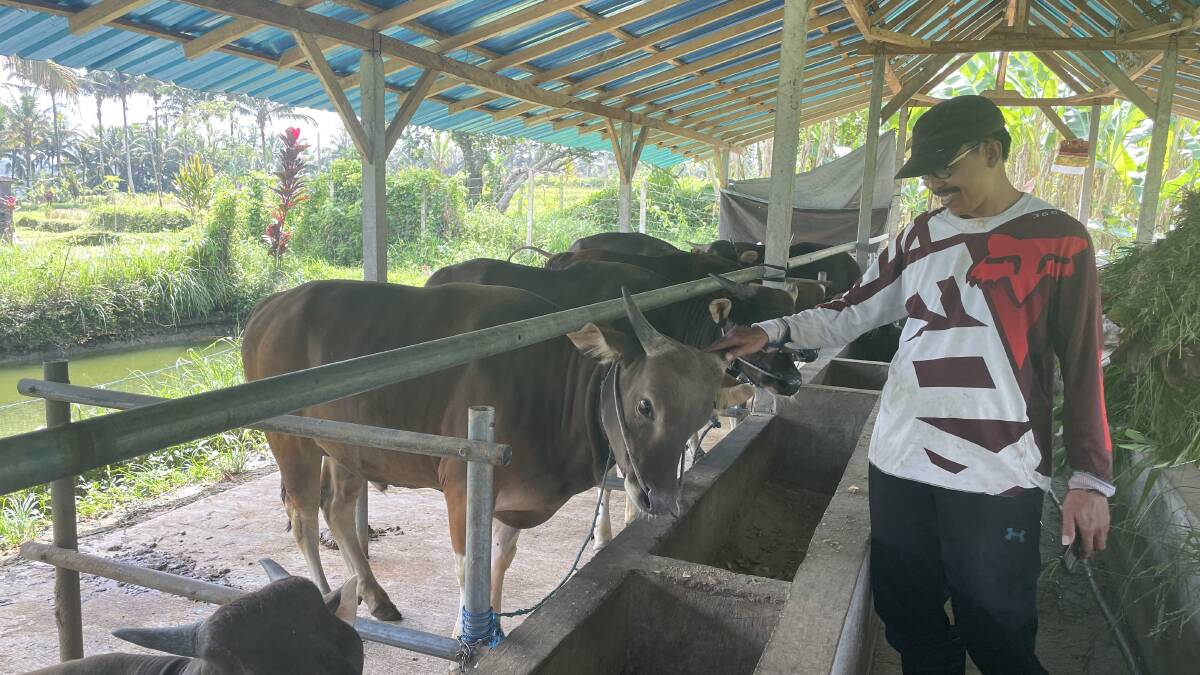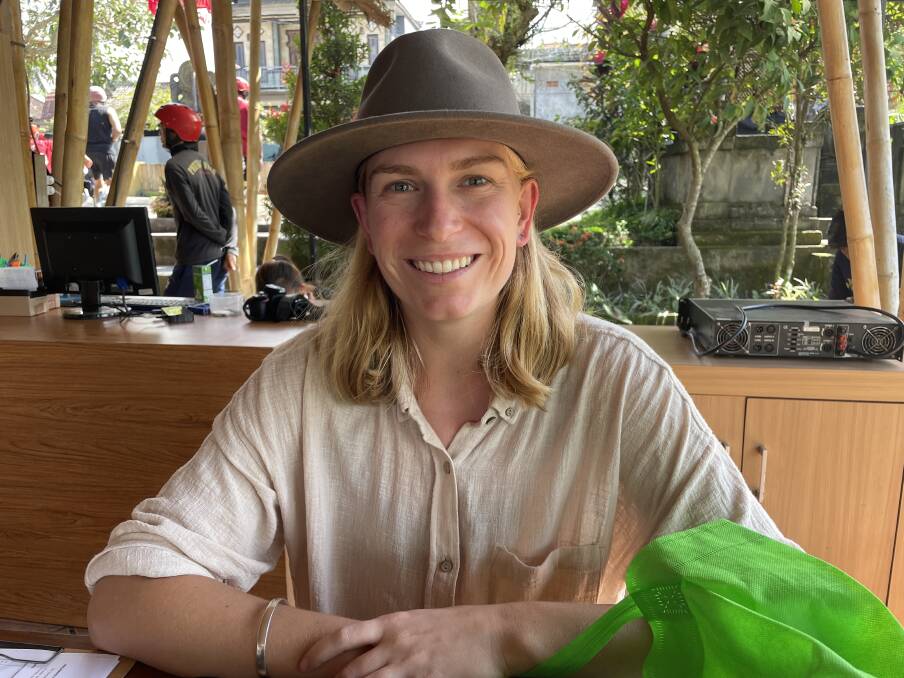KETUT Suwitera works on a small banana plantation a five-minute drive from the popular Balinese tourist town of Ubud.
His farm is on land used by an adventure tourism company to run quad-biking tours. The company owns more than 100 quad-bikes and runs up to six trips a day.
Ketut is used to seeing hundreds of tourists each day as they take the track that plunges down the hill right next to the shelter that houses his 12 cattle. You can hear the hum of the motors as the quad-bikes approach.

"They come past all the time and sometimes wave," he says. "Many different people, from many different places."
Riding down dirt tracks in single file, the bikes pass terraced rice paddies, a duck farm and several small-scale cattle operations. It's a 90-minute ride across farmland, through the jungle to visit caves and a waterfall.
Ketut is aware of the foot and mouth disease (FMD) outbreak as officials struggle to control the spread of the livestock virus, which is estimated will cause an annual loss of US$1.37 billion (AUD1.96b) to Indonesia's economy, according to the Indonesian Cattle and Buffalo Breeders Association.
The 56-year-old says his cattle make him a "rich man" in Bali, but he has no plans to vaccinate them or the 20 pigs he owns. Ketut is holding forth about the threat of the animal disease that does not affect humans following Indonesian government reports the previous week that Bali had zero cases of FMD.

"Not here, there are no problems," he says. "We no worry as the cattle stay here on this land and we have none [FMD] in Bali now."
Eyebrows have been raised at the claim that the outbreak of the highly contagious virus in Bali, first detected last month, has been contained so quickly. Indonesia's FMD taskforce has reported no active cases for the past week or so and all of the 551 infected cattle have been euthanised, with the remaining three succumbing to the disease.

Murdoch University's school of veterinary medicine principal Dr Henry Annandale doubts the disease has been totally contained within Bali.
"We are talking about the most contagious virus known to man," Dr Annandale says. "It's highly unlikely it's completely gone. It's difficult to contain and easily transmissible to different species. If it's true, it's an extraordinary achievement if they've managed to eradicate or not pick up any positive test at this moment."
READ MORE:
Since May the FMD outbreak across the South-east Asian archipelago has spread to 22 of Indonesia's 37 provinces. Officially, there have been about 500,000 FMD infections across Indonesia.
A few hundred metres up the road from Ketut's banana plantation, there are more shelters owned by other farmers housing cattle. It's a similar story throughout the region where many farmers own a handful of livestock kept near their homes.

Alice Springs nurse Meagan Bursa and her friend Sam Shields were told the quad-bike tour was a "must" by family members who had been to Bali recently.
Meagan said she was aware of the FMD outbreak in Indonesia from Australian media reports, but has heard nothing about it since arriving in Bali. The 28-year-old ditched her footwear for gumboots supplied by the tour operator before heading out on the quad bike.
Sam said family members, who recently did the same quad-bike tour, declared to Australian biosecurity officers that they had been on farmland in Bali, but none of their shoes were checked.
"They were asked if they'd been to a rural area and they said they'd worn the same shoes the whole time," Sam said. "Apparently they didn't check the shoes, which I found pretty strange."

